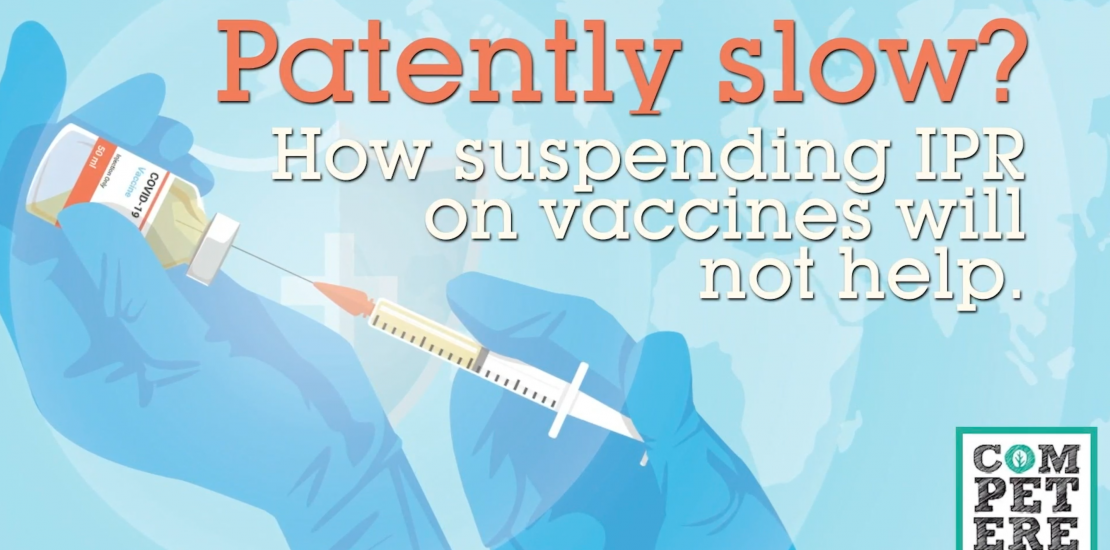- 29 March 2021
- Posted by: Competere
- Categories: highlights, News

Growing complaints about intellectual property rights only divert attention from the well-known problems about European vaccination programs: from vaccine uncertainty to local bureaucracy. Policy makers should focus on this, rather than jeopardizing the actual progress being made.
The analysis by Pietro Paganini, Temple University of Philadelphia, and Philip Stevens, Geneva Network, on Formiche:
READ THE FULL ARTICLE:
Italy’s recent, EC-backed decision to block exports of locally made Covid vaccines to Australia shows European policymakers are willing to bend international trade rules to speed up faltering vaccination programmes.
Others want more drastic action to address supply woes, such as a suspension of vaccine intellectual property (IP) rights in Europe and elsewhere to enable more companies to make the jabs.
The Italian parliament for instance, voted in December to ask the government to support a global Covid IP waiver at the World Trade Organization. Senior German and French figures are also supportive.
Boosting vaccine supply simply by increasing the number of manufacturers is seductive, but misguided. It’s not as simple as suspending patents and putting a recipe on the internet.
Many vaccines are made by growing viruses in cells. Mistakes mean production losses and delays. Every manufacturing step is tightly scrutinised by regulators, adding more delay.
Others such as the Pfizer-BioNTech and Moderna vaccines are a novel technology based on “messenger” DNA (mRNA). It’s fragile, needs careful handling, complex production processes, and exact requirements to remain stable.
Few manufacturers have these capabilities, and it would take many months to transfer the technology to others so they can set up new factories: by which point the EU vaccination programme will be in its final stages and many other vaccines will be on the market.
Far better to stay as we are, with manufacturers contracting out production tasks to specialists, from vial production, to filling and finish.
Other firms are meeting supply commitments by licensing vaccine production in full to partners, like French company Sanofi helping to produce 125m doses of the Pfizer-BioNTech vaccine for European use.
Such partnerships will see 10bn doses made by the end of 2021, enough to immunise everyone globally.
IP is fundamental to these partnerships because it provides a legal basis to safely share valuable proprietary knowledge with potential commercial rivals.
A zero IP approach, by contrast, would derail the dozens of vaccine manufacturing licensing deals, bringing chaos to global supply chains. And forcibly transferring technology to new manufacturers would take far longer than the existing partnerships, if it could be done at all.
The growing complaints about IP distract from well-documented problems with EU vaccination programmes, from vaccine hesitancy to local bureaucracy. Policymakers should focus here, instead of risking the real progress being made.
